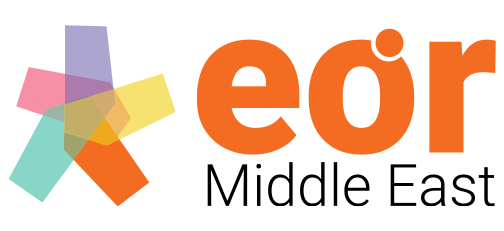First of all, we know that over the years the minimum wage in Egypt has been changing. Moreover, these elements not only impact directly on our quality of life but also the economic and social state of the country, taking into account the crisis that many Egyptians are going through due to the influence of third parties.
In this article, we will see some issues of social and informative debate about the minimum salary in Egypt today. We will also see the impact that the minimum wage leaves us as workers or business owners giving a review on all these issues that go hand in hand with the minimum wage.
Government Policies and Reforms Affecting Minimum Wage

Policies and reforms that are related to Egypt minimum wage have a strong impact on the economy, employment, and income distribution. Also, it is now important that we have knowledge about which reforms or policies may affect the minimum wage in Egypt of workers and why.
Annual Adjustments
The annual adjustment of any rate, bonus, or Egypt minimum wage is something that we should always keep in mind when understanding how this can affect the country’s economy. Also, with the increasing inflation and economic problems the country is going through, let us look at some adjustments made due to this socio-political crisis:
- Increase of the minimum salary in Egypt: Starting this March 2025, by decree of President Abdel Fattah Al Sisi, an increase in the monthly minimum wage will come into effect. Fortunately, it will be 50%, reaching 6,000 Egyptian pounds (194$).
- Increase in the government’s monthly average salary Egypt: In addition, the president ordered that all monthly government salaries be raised from 1,000 to 1,200 Egyptian pounds ($32 or $39). These decisions were taken to ease the economic burden amid the economic crisis we are facing in Egypt.
- Economic Context: Also, we have had inflation for years, and with the Gaza war this situation worsened. In August 2023. Our annual inflation reached 39.7%. In summary, the reforms seek to mitigate these economic events.
Payment Confirmation
In Egypt’s economic context, payment confirmations are a critical piece in tracking our financial transactions and assessing the flow of money in our economy. We have some key aspects that influence this context, let us see what they are:
- Economic crisis and adjustment measures: as we well know Egypt has had several economic challenges. Including inflation, fiscal and external account pressures, and a foreign exchange crisis. As a consequence, wage adjustment measures have been taken in Egypt, and social policies have been applied.
- Relationship between minimum wage in Egypt and inequality: As we know we have a population higher than 105 million people, and almost 30% of them are below the national poverty line, according to 2019 sources. For this reason, the minimum wage in Egypt and reforms directly affect the distribution of money.
- Economic outlook: As reforms take effect, we expect our economy to improve little by little, setting all challenges aside.
Moreover, payment confirmations are a fundamental part of our economy, reflecting a policy that addresses economic challenges and improves our living conditions as citizens.
Social Dialogue and Stakeholder Involvement
We must also understand that social dialogue and stakeholder involvement in the minimum wage in Egypt are important issues to consider. Moreover, they directly influence issues related to the minimum wage in Egypt. Below are some details that may be relevant:
- Social dialogue and collective bargaining: This implies the integration of employers, workers, and the government to discuss labor issues, as a central focus of the wage. in this way, social dialogue can influence the setting of minimum wage in Egypt and the creation of strategies that affect workers.
- Stakeholders: Employers’ organizations, trade unions, and other relevant sectors should be involved in the discussions of the minimum wage in Egypt. This allows for active participation of stakeholders giving us different perspectives and informed decisions to be made.
- Inequality ratio: Also, dialogue can contribute to the reduction of the gap between minimum wages and average salary Egypt. It also helps us to decrease social inequality.
Impact of Minimum Wage on Workers and Employment

The minimum wage set by law represents the income that an employer must pay us as workers. Decisions related to the minimum wage in Egypt directly affect the citizens and the economy of the country, this is why it is such a controversial issue, let us see the impacts they have:
Positive and Negative Impacts
Taking into account the positive and negative impacts related to the minimum wage in Egypt is a crucial step in understanding how the policies affect both workers and employers. Let us see what we can get out of it:
-
Positive impacts:
- Higher living standards: Higher minimum wages in Egypt can raise our standard of living, by giving us enough income to meet basic needs. For example, food, housing, and good medical care.
- Low poverty levels: Also, a good minimum wage can help reduce poverty and improve the quality of life for low-income workers.
- Social stability: By having fair minimum wages, social stability will be maintained passively and in good condition.
-
Negative impacts:
- Increase in unemployment: also, higher minimum wages can increase costs for employers, which could lead to a reduction of staff.
- Impact on small businesses: small businesses may have trouble complying with higher minimum wages. Thus, affecting economic viability.
- Labor informality: In certain cases, employers may choose to hire workers in informal ways to avoid paying high minimum wages.
-
Considerations to keep in mind:
- Effect on inflation: Increasing minimum wages in Egypt could have an impact on inflation if not done properly.
- Balancing benefits and costs: It is also critical that we balance employee costs and benefits with potential business costs.
Addressing Income Inequality
As we have been saying, income inequality is a crucial issue. As we move toward addressing inequality, we must consider several factors beyond the simple distribution of income. Let us see what we can understand by these terms:
- minimum salary in Egypt policies:
- Raising the minimum wage: Increasing the minimum wage can raise the money earned by low-income workers. In addition to reducing the gap between social classes.
- Fragile balance: However, it is essential to find a middle ground to avoid negative effects. For example, the massive job losses or the desperation of small businesses.
-
Factors:
- Social mobility: Social mobility can also allow people to change their economic position over time.
- Gender equality: On the other hand, we can address gender differences to reduce inequality.
- Social Protection and Labor Rights
- Safety nets: We can also implement protection systems with assistance programs and unemployment insurance.
- Labor rights: Give labor rights and enforce them as fair wages and optimal working conditions.
- Holistic approach:
- Global engagement: Also, global cooperation is essential to address inequality.
- Post reconstruction COVID: The pandemic provides us with an opportunity to build a more equitable environment for all parties.
Skill Development and Career Advancement
On the other hand, we must keep in mind that skills and career advancement are fundamental to the occupational and economic growth of individuals. From these points, we can deduce the link to the Egypt minimum wage.
- Economic growth: A skilled workforce helps economic growth. By having relevant skills, workers generally help their industries and the country’s economy.
- Less unemployment: Skills development programs can also help people to have the competencies needed for new jobs.
- Improved employability: They create employees with better career advancement skills. Making them attractive to hire.
- Income Gap: Skills development helps disadvantaged backgrounds, reducing income inequality.
Future Policy Projections Anticipated Reforms and Adjustments
Reforms and adjustments have been made to address the needs of working people, not to mention the minimum wage. Let us look at some of these decisions for change:
- The minimum wage for government workers and pensions is expected to be increased by the government.
- The President announced a 50% increase in Egypt’s minimum monthly salary. As of March 2025, it will be 6,000 pounds ($194). In addition, it was ordered that all monthly government salaries will be increased by a minimum of 1,000 to 1,200 pounds ($32 and $39).
- These measures have been taken to overburden the lives of the citizens; amid the economic crisis, we are going through. Russia’s invasion of Ukraine and disruptions in the global supply chain have affected the economy.
In conclusion, Egypt is going through a critical moment in its economy due to various socio-political factors, for this reason, different strategies have been implemented for the most vulnerable citizens.

Remember that if you want to read about this and other topics of interest you can do it in our blog, or if you prefer to talk to us, you can write us at [email protected], we will be waiting for you to give you the best information.


